Grindr and other gay sex apps can make users dependent
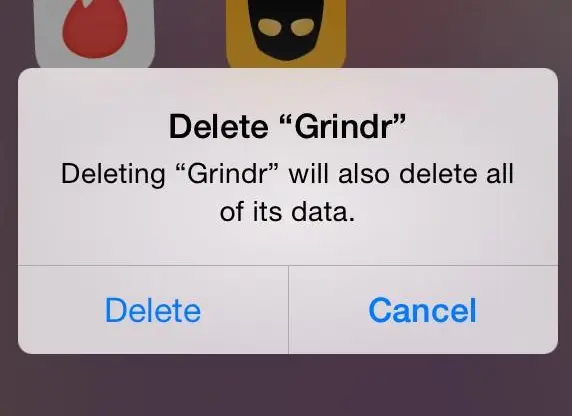
We’ve all been there with dating apps. You have a bad experience, delete the app and claim you’ll never download it again. Then somehow you’re back scrolling through men again days later.
Are we becoming addicted to dating apps such as Grindr? And if so, how and why is this happening?
With almost four million users worldwide, Grindr has created a new ease of meeting which has changed the face of gay dating and sexual encounters.
Plenty of people have had great experiences with the platform and have even found love. However, a new study has found that Grindr makes users more miserable than any other app on the market.
The app has also been in the headlines recently for sharing users’ HIV statuses with two external companies and for being linked to a rise in STI rates.
Despite this, Grindr finds its way back onto many users’ smartphones. “Urgh back on here” and “sorry lost all chats” are common Grindr phrases which indicate many profiles have been deleted and reinstalled in a perpetual cycle.
PinkNews spoke to David Stuart, who manages support services at sexual health clinic 56 Dean Street about the enigma of Grindr, who suggested our relationships with these apps is similar to that of an addiction.
Stuart said: “Addiction has many definitions, but one of them includes a compulsive pursuit of a dopamine release in our brains…
“Hit the right buttons and you get a sexual affirmation, that causes a dopamine release… Each button we touch holds the promise of sexual excitement or satisfaction, sometimes even a cure for loneliness or isolation.”
This pursuit of a dopamine release is similarly used to describe gambling addictions, however, a dating app addiction can have a more direct effect on a user’s confidence and self-worth.
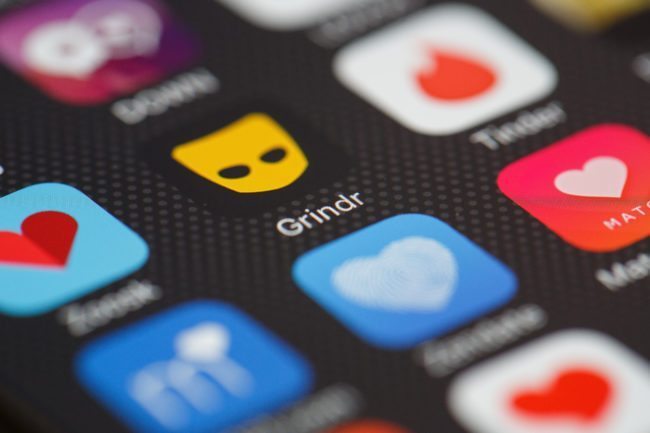
(Leon Neal/Getty)
Cormac Doyle, senior mental health practitioner at Henmore Health, explained to PinkNews: “Dating and social apps tend to play on your self-esteem, your fear of missing out.”
“It gives you attention, makes you flattered and special in a world where you may feel the benefit of the adrenaline rush.”
It could be suggested that this fear of missing out is what entices many people to continue using the app and even reinstall it.
Should users seek support to quit Grindr for good if they become dependent on the dating app?
Can you be addicted to Grindr?
“The internet itself is really the addictive medium,” said Dr David Greenfield, founder of The Centre for Internet and Technology Addiction.
Talking to Gawker, Greenfield said: “Even if you’re on the internet looking for information and just searching for news, or you’re looking at emails or text messages, or you’re on an app on your phone like Grindr or Tinder or whatever, you’re doing exactly the same thing.
“Every time you get one of those hits, you’re getting a microburst of dopamine in the mid-brain.”
Apps like Grindr are designed to make looking for sex easy, creating an association between using the platform and receiving a pleasurable experience.
With a few simple clicks, a user is able to find a new sexual partner within the hour.
Stuart explained: “Like the fruit machine, there are no right or wrong buttons, it is largely a game of chance – but we can get caught in a cycle of compulsive, repetitive use, chasing the promise of a dopamine rush.”
In this instance, the dopamine rush is often the promise of a new sexual encounter with another user on Grindr.
“Dopamine releases can be doubly attractive when mixed with sexual arousal.
“Sometimes these affirmations can be contradicting a poor sexual self-worth that we may have, making them more attractive again,” Stuart added.
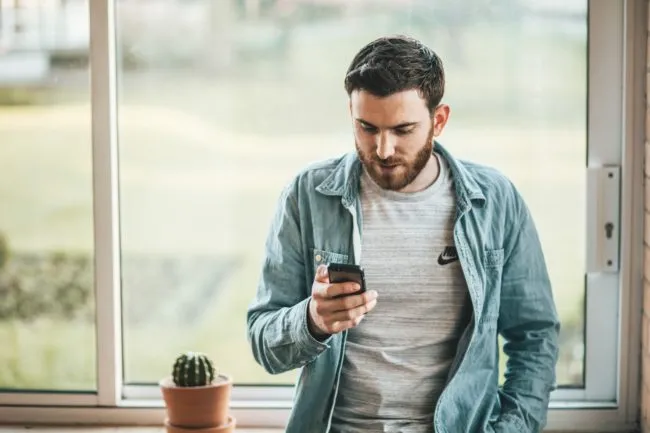
(Tom Holmes)
Time Well Spent, an organisation dedicated to “reversing the digital attention crisis,” polled 200,000 iPhone users about their app usage to discover how different apps make us feel.
Topping the “unhappy” list was Grindr, with 77 percent of users regretting using the app.
This research suggests that although most individuals are unhappy when using the app, the temporary dopamine rush is addictive enough to keep them engaged with their screen.
Some mental health practitioners have argued that this dependence on a temporary fix could lead to other addictions and have a detrimental effect on a user’s mental health.
Doyle explained: “Research indicates a 30 percent increase in sex addiction directly linked to dating apps. With development in technology and dating apps there appears to be a rise in sex addiction.”
Talking to The Guardian, one user commented that “Grindr’s addictive… I’ve lost entire weekends to sex. A lot of gay men have addiction issues…”
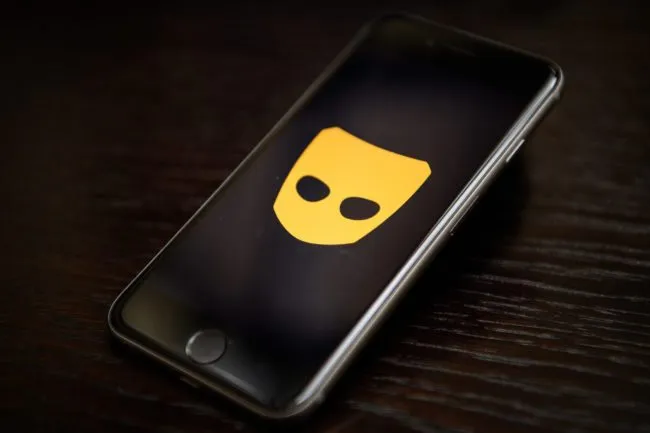
Grindr (Leon Neal/Getty)
Chemsex
Grindr has also been linked to drug abuse and addiction through the rise in popularity of chemsex.
Users are able to promote their involvement with the chemsex scene on their profiles with a simple ‘P&P’ (party and play) caption to link up with similar accounts.
With the use of chemsex terminology being so visible on Grindr, it could be argued that the app is further contributing to other addictions.
Grindr and mental health
“Just like any addiction it can lead to significant loss, leading to secondary mental health issues such as severe anxiety and depression,” explained Cormac Doyle.
As well as the feeling of rejection many dating apps cause, Grindr may also develop an individual’s insecurities about their own body image.
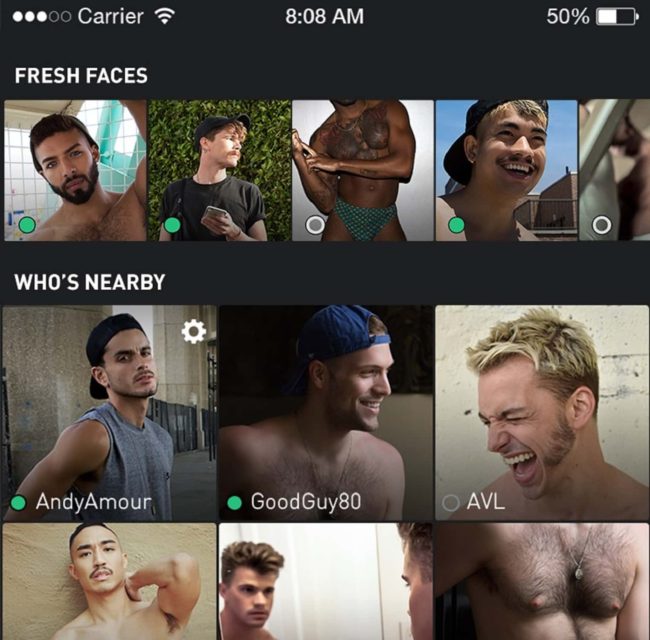
(Grindr)
Ruby Stevenson, Education and Wellbeing Coordinator for young people’s sexual health and wellbeing charity Brook, said: “There is a risk that people with existing body anxieties or low self-esteem might be vulnerable in an environment where people are predominantly judged on their image.”
With the geo-locating software showing users the closest 100 men, Greenfield suggests that “having endless choices doesn’t make us happier, it makes us more stressed.”
How to seek support for a Grindr addiction
Although the app has had strong, positive connotations on the gay dating scene, it is apparent that many users have become addicted to the software and are suffering because of it.
David Stuart advises individuals who may have an unhealthy relationship with the app to ask themselves the following questions:
- Why am I using the App?
- What is the outcome I am seeking?
- Is it delivering what I want from it?
- Do I get an unpleasant feeling while using it, or afterwards?
- Is my enjoyment of the App accompanied by an anxiety?
- Is it interfering in the way I choose to spend my time?
- Is it interfering with my friendships or relationships?
- Am I late for appointments because of my use?
He added: “Compulsive use of sex apps is very common, and some people feel shame or confusion about it, because it is so poorly understood.
“The chems support team at Dean Street are all capable of supporting gay men with compulsive app use, regardless whether it is associated with chem use or not.”
LGBT support centres, such as 56 Dean Street and private mental health providers such as Henmore Health have a wealth of experience in supporting gay men with addiction issues.

